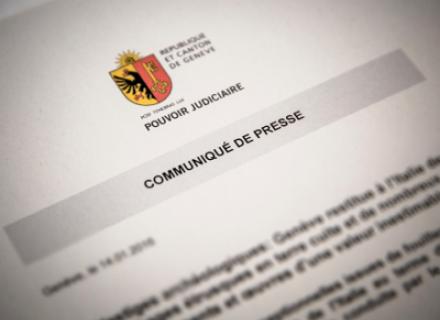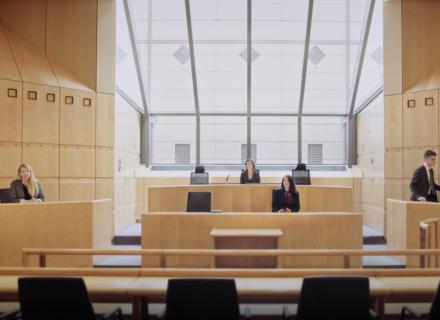Contacts
Address
Contact details
Telephone
Mailing adress
Direction de la communication
Case postale 3966
1211 Genève 3
Directorate
Mrs. Anne PLAGNAT
Director
Mr. Olivier FRANCEY
Media relations Officer
Competences
Institutional communication
- The Direction de la communication proposes to the Commission de gestion the policy and strategy for the institutional communication of the Judiciary Power, both internal and external.
- It implements communication plans, particularly within the framework of cross-cutting projects, and ensures the monitoring of actions and their evaluation.
- It advises and supports governance bodies, magistrates and project managers for their internal or external communication from an institutional perspective.
Media relations
- The Direction de la communication is responsible for media relations, coordination and follow-up of requests for information and interviews, as well as the management of journalists' accreditations.
For more information
Visual identity
- The Direction de la communication ensures that the visual identity of the Judiciary Power is applied consistently to all institutional communication media.
Publications
- The Direction de la communication is responsible for the design and production of publications, in particular brochures, booklets and the annual report on the activities of the Judiciary Power.
For more information
Events
- The Direction de la communication organises the Judiciary Power's internal and external events, including meetings with the public (open days, participation in the Cité des métiers and Democracy Week, etc.).
Digital communication
- The Direction de la communication is in charge of the animation and the evolution of the Internet and Intranet sites as well as the management of social networks.
Organization
The Direction de la communication is composed of:
- A director
- A media relations officer
- A webmaster
- A communication officer
Questions/answers
Media requests for taking photos or videos must be submitted to the Direction de la communication of Judiciary Power.
Taking pictures or videos must comply with certain rules.
Persons in the background must not be identifiable unless they give their consent. The same applies to documents which must not be legible, even after the image has been enlarged.
Taking pictures, videos or recordings during hearings is prohibited and commercial purposes are outlawed.
For more information, see:
The Judiciary Power is present on social networks. You can consult the rules for the use of social media defining the policy in this area.




